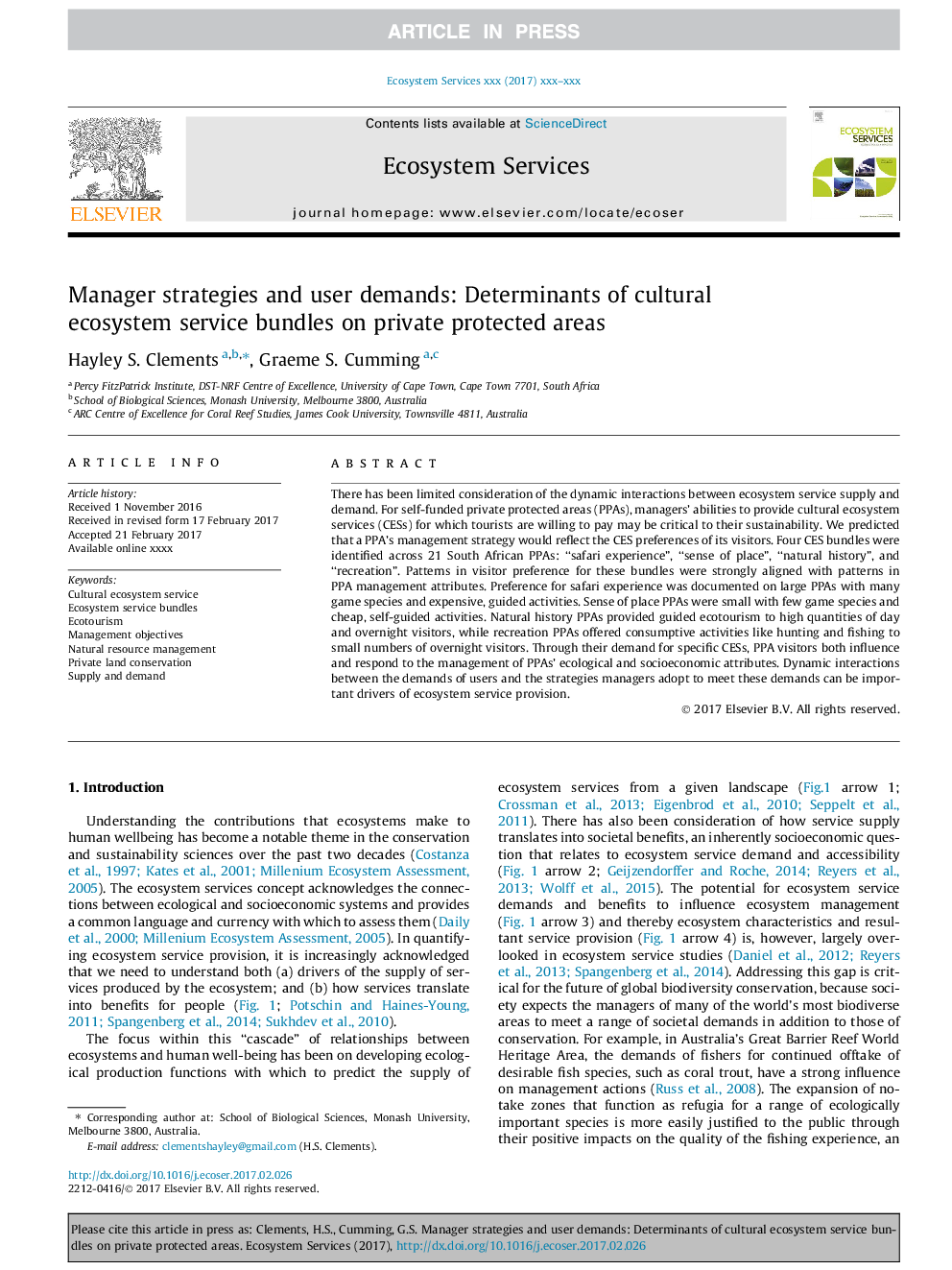| Article ID | Journal | Published Year | Pages | File Type |
|---|---|---|---|---|
| 6556511 | Ecosystem Services | 2017 | 10 Pages |
Abstract
There has been limited consideration of the dynamic interactions between ecosystem service supply and demand. For self-funded private protected areas (PPAs), managers' abilities to provide cultural ecosystem services (CESs) for which tourists are willing to pay may be critical to their sustainability. We predicted that a PPA's management strategy would reflect the CES preferences of its visitors. Four CES bundles were identified across 21 South African PPAs: “safari experience”, “sense of place”, “natural history”, and “recreation”. Patterns in visitor preference for these bundles were strongly aligned with patterns in PPA management attributes. Preference for safari experience was documented on large PPAs with many game species and expensive, guided activities. Sense of place PPAs were small with few game species and cheap, self-guided activities. Natural history PPAs provided guided ecotourism to high quantities of day and overnight visitors, while recreation PPAs offered consumptive activities like hunting and fishing to small numbers of overnight visitors. Through their demand for specific CESs, PPA visitors both influence and respond to the management of PPAs' ecological and socioeconomic attributes. Dynamic interactions between the demands of users and the strategies managers adopt to meet these demands can be important drivers of ecosystem service provision.
Keywords
Related Topics
Life Sciences
Agricultural and Biological Sciences
Agricultural and Biological Sciences (General)
Authors
Hayley S. Clements, Graeme S. Cumming,
